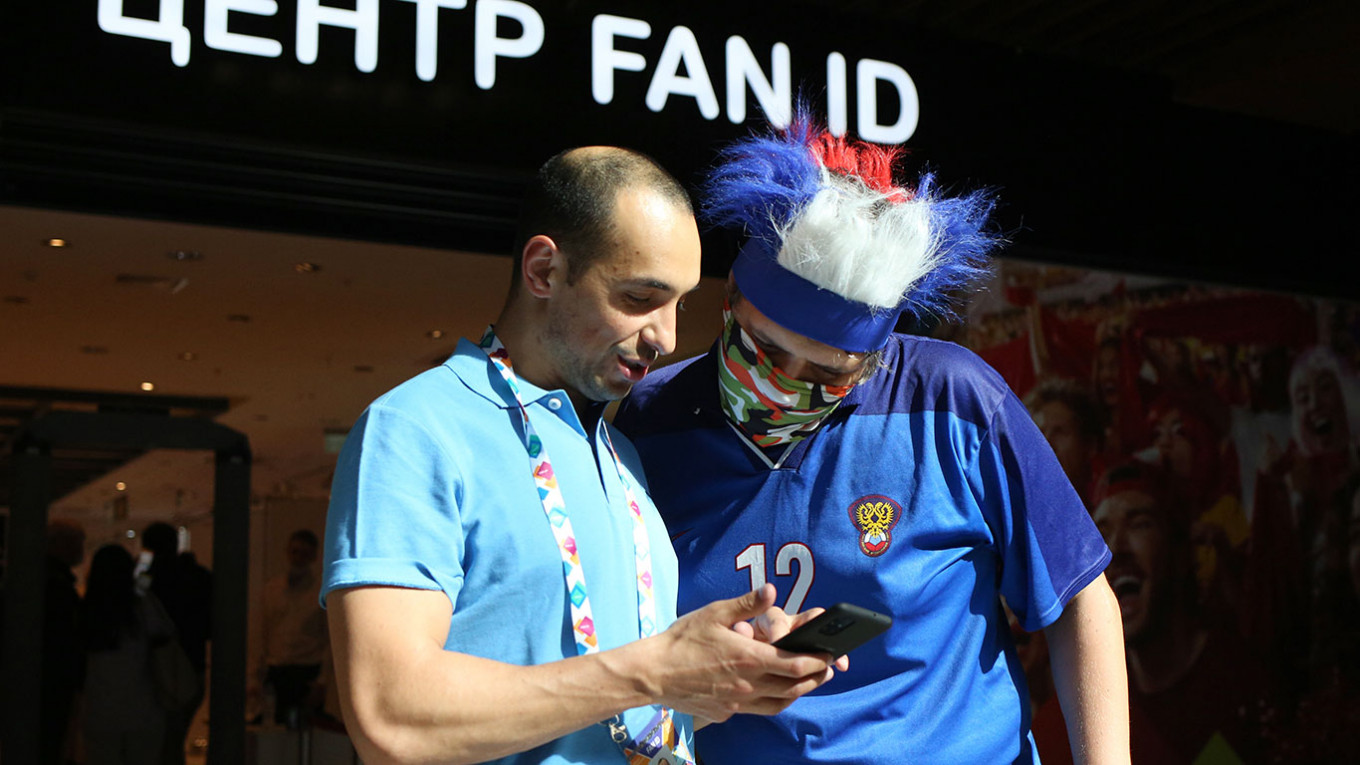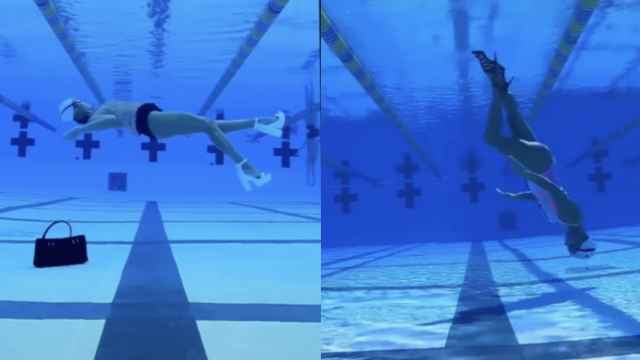Russian football fans’ growing boycott movement against a controversial new law requiring them to present personal data before entering the stadium is gaining steam, prompting a response from the Kremlin.
The initiative, set to come into force on June 1, will require fans to submit their personal details through a government portal in order to attend matches.
Authorities say the Fan IDs will boost safety inside stadiums by letting them run background checks on fans, refusing entry to those with criminal records or anyone deemed to have “the intention of committing unlawful acts,” according to a description of the law published on the website of the State Duma, Russia’s lower house of parliament.
But fans have pushed back against the initiative, saying the new measures are part of a wider crackdown on fan groups and an attempt to exert more control over fans inside stadiums.
Fans of Rostov FC on Monday became the latest side to join the boycott after supporter groups at Russia's three largest clubs — Zenit, Spartak and CSKA — had already denounced the planned Fan ID system.
“We believe that the introduction of this measure will not improve the safety and comfort of spectators, but will become another tool for already pervasive and excessive control,” the Fans of FC Rostov group wrote Monday on the VKontakte social network.
The backlash — with swathes of fans apparently ready to boycott matches in an attempt to scrap the system — has caught authorities off guard.
Russia first implemented a similar Fan ID system at the 2017 Confederations Cup, as well as the 2018 World Cup and Euro 2020 fixtures in St. Petersburg last summer.
While it has not yet been confirmed which sporting events will be covered by the system, fears over possible boycotts have already spooked Russian Premier League (RPL) bosses, who say clubs are still suffering from a downturn in attendance due to the coronavirus pandemic.
“The foundation of football is the fans. Preserving them is a top priority,” RPL President Ashot Khachaturyants said in an interview with Sports.ru on Monday. Khachaturyants has defended the new system, however, stating that Fan IDs are a necessary step to ensure spectator safety.
Kremlin spokesman Dmitry Peskov on Tuesday called for conversations between the clubs and their fans to avert the planned boycott, but continued to back the Fan ID initiative, which President Vladimir Putin signed into law earlier this year.
“A dialogue with fan associations and explanatory work are needed. Fans must understand why their reaction is unreasonable. Maybe it’s just that the members of these associations don’t understand some of the nuances.”
Some Spartak fans plan to completely boycott their team’s matches when the season starts back up in spring unless there is a complete repeal of the law, the Arena@Nezygar Telegram channel reported.
“Stadiums are not prisons. Football is for the fans,” Spartak’s top fan group, Fratria, wrote on its website on Monday.
RPL clubs and presidential aide Igor Levitin are set to discuss the issue in a meeting Wednesday.
A Message from The Moscow Times:
Dear readers,
We are facing unprecedented challenges. Russia's Prosecutor General's Office has designated The Moscow Times as an "undesirable" organization, criminalizing our work and putting our staff at risk of prosecution. This follows our earlier unjust labeling as a "foreign agent."
These actions are direct attempts to silence independent journalism in Russia. The authorities claim our work "discredits the decisions of the Russian leadership." We see things differently: we strive to provide accurate, unbiased reporting on Russia.
We, the journalists of The Moscow Times, refuse to be silenced. But to continue our work, we need your help.
Your support, no matter how small, makes a world of difference. If you can, please support us monthly starting from just $2. It's quick to set up, and every contribution makes a significant impact.
By supporting The Moscow Times, you're defending open, independent journalism in the face of repression. Thank you for standing with us.
Remind me later.







